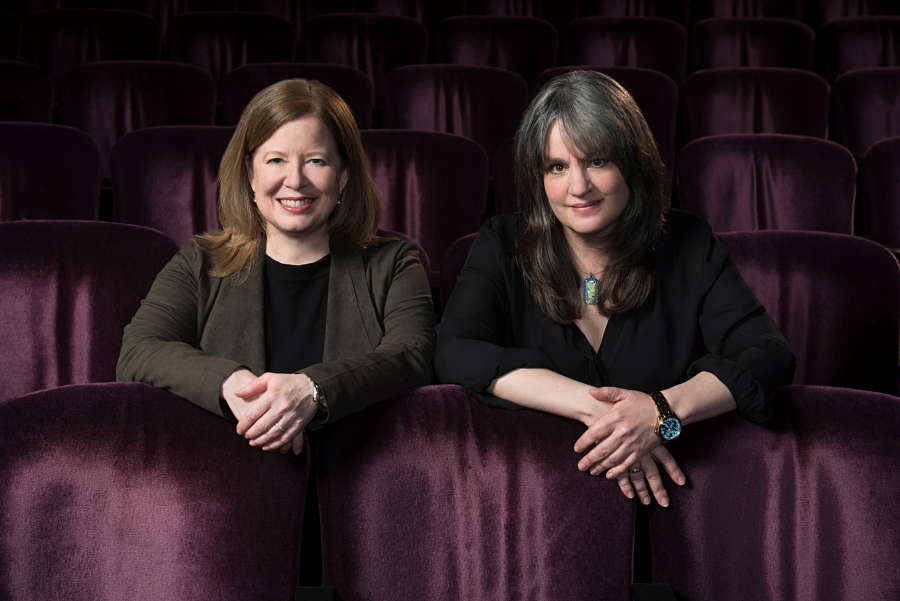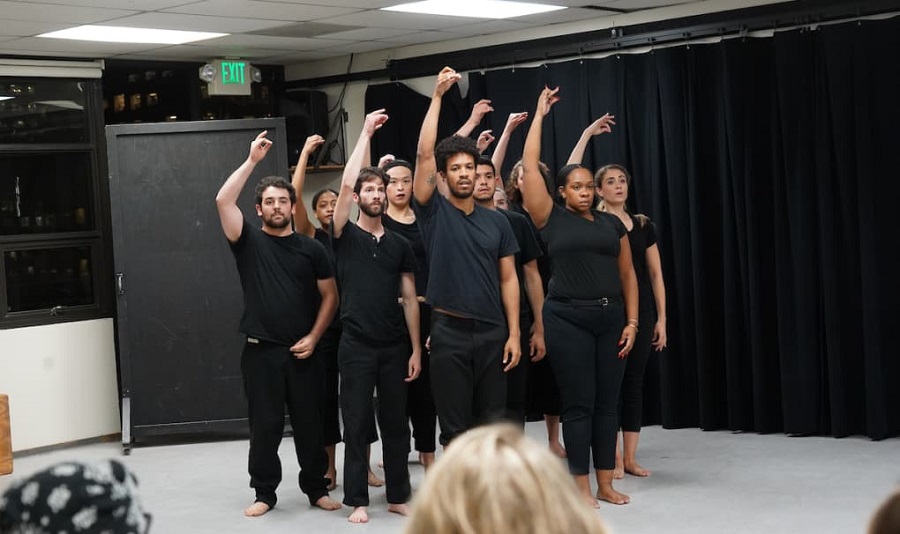The Master of Fine Arts program at San Francisco’s American Conservatory Theater (ACT) is a behemoth—a juggernaut of artistic excellence that for decades has nurtured talent now disseminated throughout the country, and the pride of the Bay Area’s theatre scene.
Jomar Tagatac has fond memories of his time in the program, especially the many hours he and his classmates would spend with Melissa Yandell Smith, the director of the conservatory for 25 years beginning in 1995. Smith, who died last September at age 64, was a calming presence in a sea of intense, rigorous training that tested mind and body daily.
“We as a class leaned on her,” said Tagatac, a highly sought after theatre actor who graduated with his MFA in 2005. “If there was anything we needed emotionally or professionally or just needed somebody to talk to, we’d sit in her office to chat and get advice.”

Tagatac’s memories of the highly respected actor, teacher, and mentor, and the tools he developed to give himself a thriving career in the theatre, filled his mind as he pondered his alma mater’s last act. After many years of developing transformational acting talent, ACT will celebrate the class of 2022 in May, and then close its MFA program for good.
ACT was founded in 1965 by William Ball, known by many prospective directors for his 1984 book A Sense of Direction: Some Observations on the Art of Directing. Formed as a resident company in Pittsburgh, the company began looking for a new home within a year. That search led them to a group of Bay Area patrons and supporters who were willing to fund a six-month season—a commitment which quickly grew into a year-round company and strong community partnership. A one-year program, the Advanced Training Program, started not long after, in 1970, originally offering college credit; probationary accreditation for an MFA came in 1978.
The names associated with the program comprise a who’s who of world-class star power: Anika Noni Rose, Elizabeth Banks, Milo Ventimiglia, Annette Bening, Anna Deveare Smith, and Denzel Washington are just a handful of ACT grads who populate stages and screens throughout the world. Each took their place as young hopefuls at 30 Grant Avenue, creating memories and honing their craft in one of the world’s premier destination cities. Many student post-show gatherings took place at the Pinecrest Diner, just doors down from the Geary Theater, ACT’s signature space. Students would all but occupy the 24-hour eatery, sharing dreams filled with Broadway stages and movie sets. And as everyone knows, a meal is always better when it comes with a healthy student discount.
So why is ACT shutting down this acclaimed program? Tagatac, who has stayed close to the company as a performer, most recently was appointed a member of the company’s board of trustees, and as such he was aware that the school had been working tirelessly to find a university partner in order to stay open (the program was the last free-standing actor training program within a theatre in the country). But, as ACT artistic director Pam MacKinnon (she/her) put it, there were three reasons that such a partnership did not come to fruition: “COVID, COVID, COVID.”
It was not for lack of trying, she added. “Our conversations pre-COVID-19 were going very well,” said MacKinnon, who has served as ACT’s artistic director since 2018. But the longer the pandemic lingered, the more prospects for a partnership began to recede.
“In summer of 2021, we started having some new conversations, which also went well,” MacKinnon said. “But because of COVID, even the good conversations were going slowly. Higher learning in general, even education more broadly, has seen the performing arts being one of the hardest hit sectors because of COVID.”

A month ago, with no partnership in place, leadership realized they needed to let crucial faculty and staff know that they couldn’t commit to bringing in a new class. Thus was the fate of the program sealed.
Danyon Davis (he/him), who was hired as the Head of Movement in July 2019, took over as director of the MFA program in November 2020—i.e., in the midst of COVID. So much has happened in that span of time, including what Davis saw as a slow erosion of the three-year programs interdependent operations: Each cohort works in concert with the next, as mentors and collaborators through the annual student-produced Sky Festival, and ultimately as artists who model professionalism, with third-year students working on ACT’s mainstage with artistic staff. These opportunities have been attenuated by the pandemic, and Davis’s priority, he said, has been to center the students who have been impacted greatly by these changes.
The end of the MFA program is just one of many adversities students have faced, he added. San Francisco’s shelter-in-place order came seven months after their training began. Melissa Yandell Smith, who had recruited the students and was their first-year acting teacher, announced her retirement in their second year, and died early into their third. Davis has been witness to all of these calamities, and took special note of just how resilient this final group is.
“Our students have been determined and committed throughout their academic careers at ACT, and it should be noted that not a single student elected to withdraw in the face of so much uncertainty around the program,” said Davis. “We’ve done our best to live up to and honor the faith that the students and their families placed in our ability to deliver a rigorous and safe environment that will set them up for long-term success in their chosen career.”
ACT’s executive director, Jennifer Bielstein, has two very clear takeaways as she ponders what this end of an era means.
“This program has been incredibly significant and important to the theatre, and has impacted the lives and careers of so many artists in our field—it’s pretty incredible,” said Bielstein. “It’s very sad for all of us that this is what we’re facing. COVID has forced a lot of very difficult, disappointing, and hard decisions.”

For Davis, being present and engaging in long walks with faculty and students alike have provided balm in these unprecedented times.
“I quickly learned from the logistical point of view that changes in policy require well thought out strategy and the commensurate commitment of resources,” said Davis. “In working with people, I’ve learned a lot about listening to understand, rather than listening to speak. My colleagues and I have needed to develop greater sensitivity so that we can identify and address pain points among the students, but also maintain a learning environment that is challenging in all of the appropriate ways.”
Despite the loss of such an educational pillar, ACT is not out of the education business. Things like Studio ACT, the summer training congress, and the company’s long-standing conservatory program will all continue. “All of these programs are going full force as we speak,” said Bielstein.
Still, MacKinnon conceded that this is a devastating loss worthy of mourning. While a healthy celebration of all that has been accomplished will be on full display at the final MFA graduation in May, both MacKinnon and Bielstein agreed that there are no silver linings at present—just an illustrious past to build on.
“I remember the day after we made the announcement, I had an email exchange with a fairly recent alumnus, Kadeem Ali Harris, who made his Broadway debut in Thoughts of a Colored Man that same night, and I wanted to celebrate him,” said MacKinnon. “I sent him an email congratulating him for stepping on a Broadway stage. He thanked me, but then he said, ‘The ACT legacy will continue on.’ I think that’s just true. Our founding ethos has been about acting, and I think the alumni network will continue, because it’s such an amazing network.”
David John Chávez (he/him) is a Bay Area-based theatre critic and reporter. He is chair of the American Theatre Critics Association. Twitter: @davidjchavez


